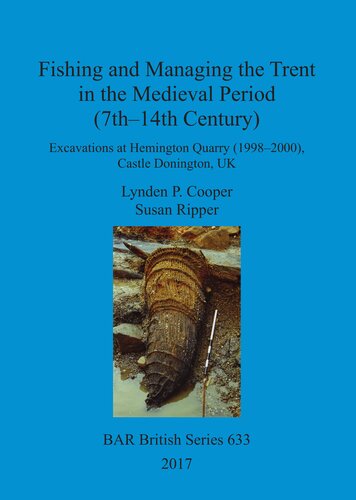

Most ebook files are in PDF format, so you can easily read them using various software such as Foxit Reader or directly on the Google Chrome browser.
Some ebook files are released by publishers in other formats such as .awz, .mobi, .epub, .fb2, etc. You may need to install specific software to read these formats on mobile/PC, such as Calibre.
Please read the tutorial at this link: https://ebookbell.com/faq
We offer FREE conversion to the popular formats you request; however, this may take some time. Therefore, right after payment, please email us, and we will try to provide the service as quickly as possible.
For some exceptional file formats or broken links (if any), please refrain from opening any disputes. Instead, email us first, and we will try to assist within a maximum of 6 hours.
EbookBell Team

5.0
40 reviewsTowards the end of the 20th century, sand and gravel extraction in the Middle Trent moved from the higher terrace gravels down onto the wide floodplain zone. The lower Hemington terrace gravels presented waterlogged conditions with excellent preservation of riverine structures, organic artefacts and ecofacts. One of the first discoveries occurred at Hemington Quarry in 1985: a 12th century mill dam and vertical water mill. An ongoing watching brief recorded many riverine structures and culminated in the discovery of three medieval bridges. The present book describes the discoveries from 1998 to 2000 of numerous medieval riverine structures. Three fish weir complexes of the late 7th-12th centuries produced rare evidence for the capture of migrating silver eels. A 12th-century mill dam was later reused as a basket fishery. A series of stone and timber bank-side structures of the 14th century reflect a change in fishing technology: the cribs were used to manage the river and provide river conditions suitable for net fishing.